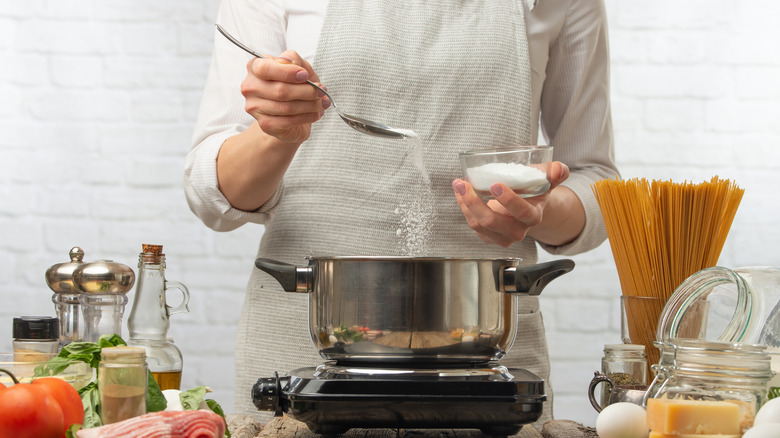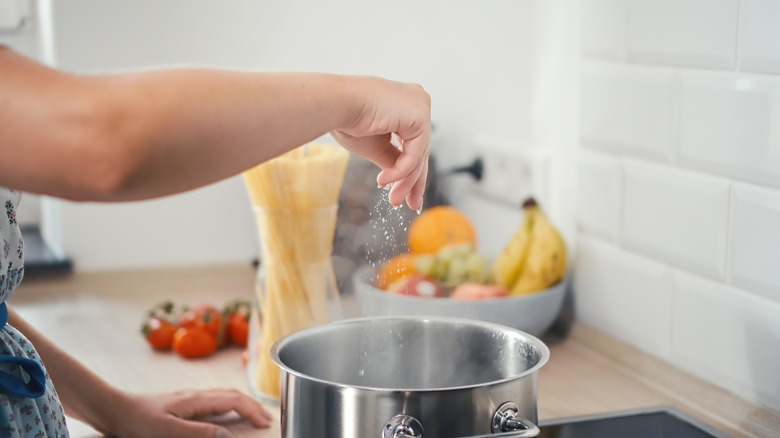Is There A Right Time To Salt Pasta Water?
Pasta is one of the most popular and widely consumed grains in the United States: According to Share the Pasta, on average, Americans consume 20 pounds of pasta per year and a collective 5.95 billion pounds per year. It is the sixth-highest food consumed in the country, and the United States is the second-largest producer of pasta in the world.
Given the numbers, odds are that you've cooked pasta quite a few times in your life. Boiling the perfect pot of pasta doesn't require a culinary school degree, but there are a few ways to make it even better in terms of flavor, cook time, and more.
You likely aren't eating pasta as it is but are rather pairing it with any number of delicious sauces. Still, the pasta itself should be as flavorful as possible for the best end result, and the best way to flavor pasta is to properly salt it during boiling, as long as you do so at the right time.
Wait until it's boiling
One of the most classic and timeless pieces of cooking advice is to salt your pasta water, but there's more to it than simply sprinkling some salt flakes in a pot of cold water. There are lots of variables at play, including what kind of salt to use, how much, and when to add it. Bon Appétit recommends using Kosher salt as opposed to table salt, and adding a lot more than you think.
According to Mental Floss, you should be adding at least 1 tablespoon of salt per every quart of water and use at least 6 quarts of water for every pound of pasta. This means that for each pound of pasta, you should use at least 6 tablespoons of salt.
You also shouldn't add the salt until the water is already boiling. While many people believe salt makes water boil quicker, it actually raises the boiling point. This can make your pasta cook quicker, but it will take the water a little longer to reach a boiling point (via AstroCamp). Instead, wait until the water is boiling, add the salt, and then the pasta.

